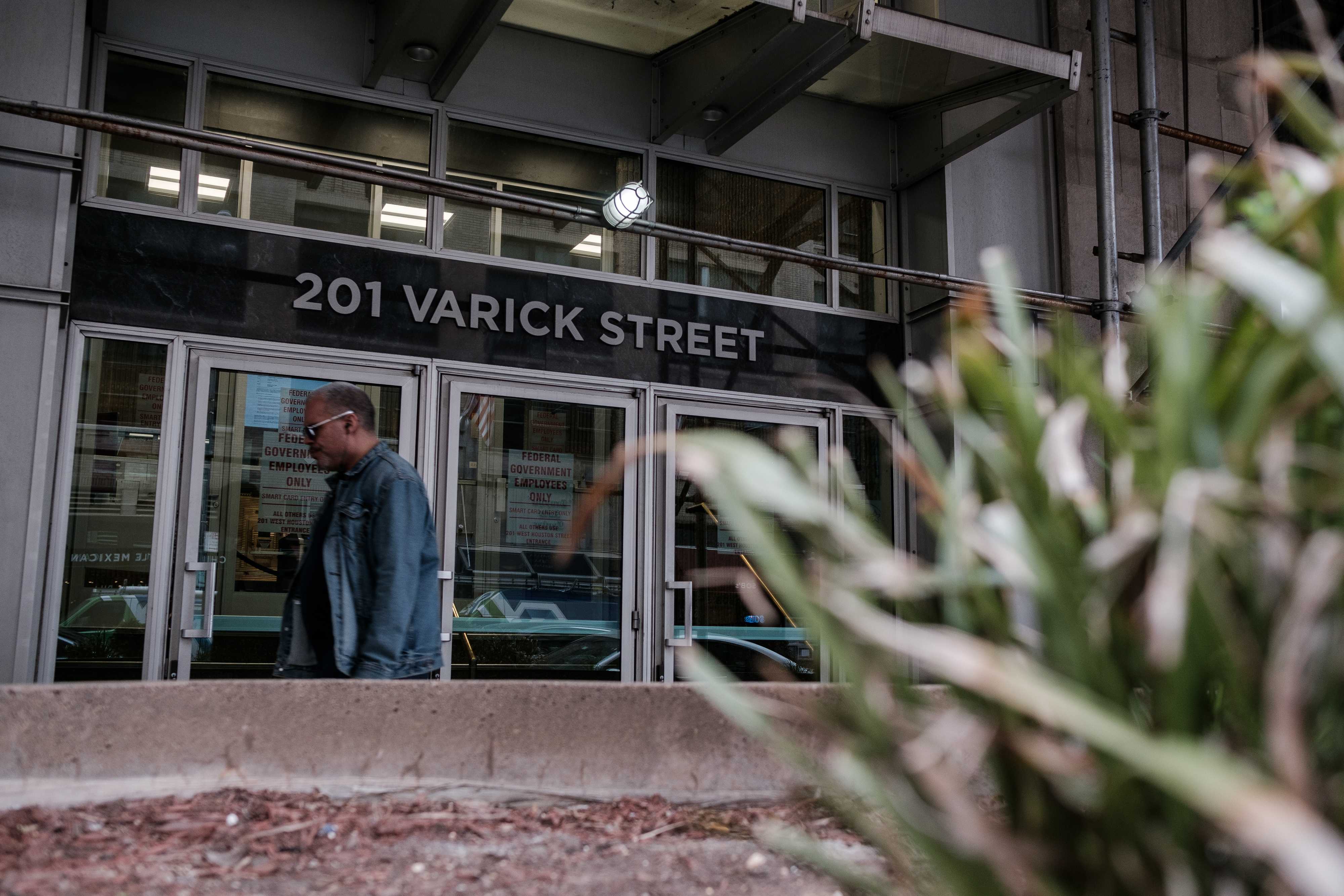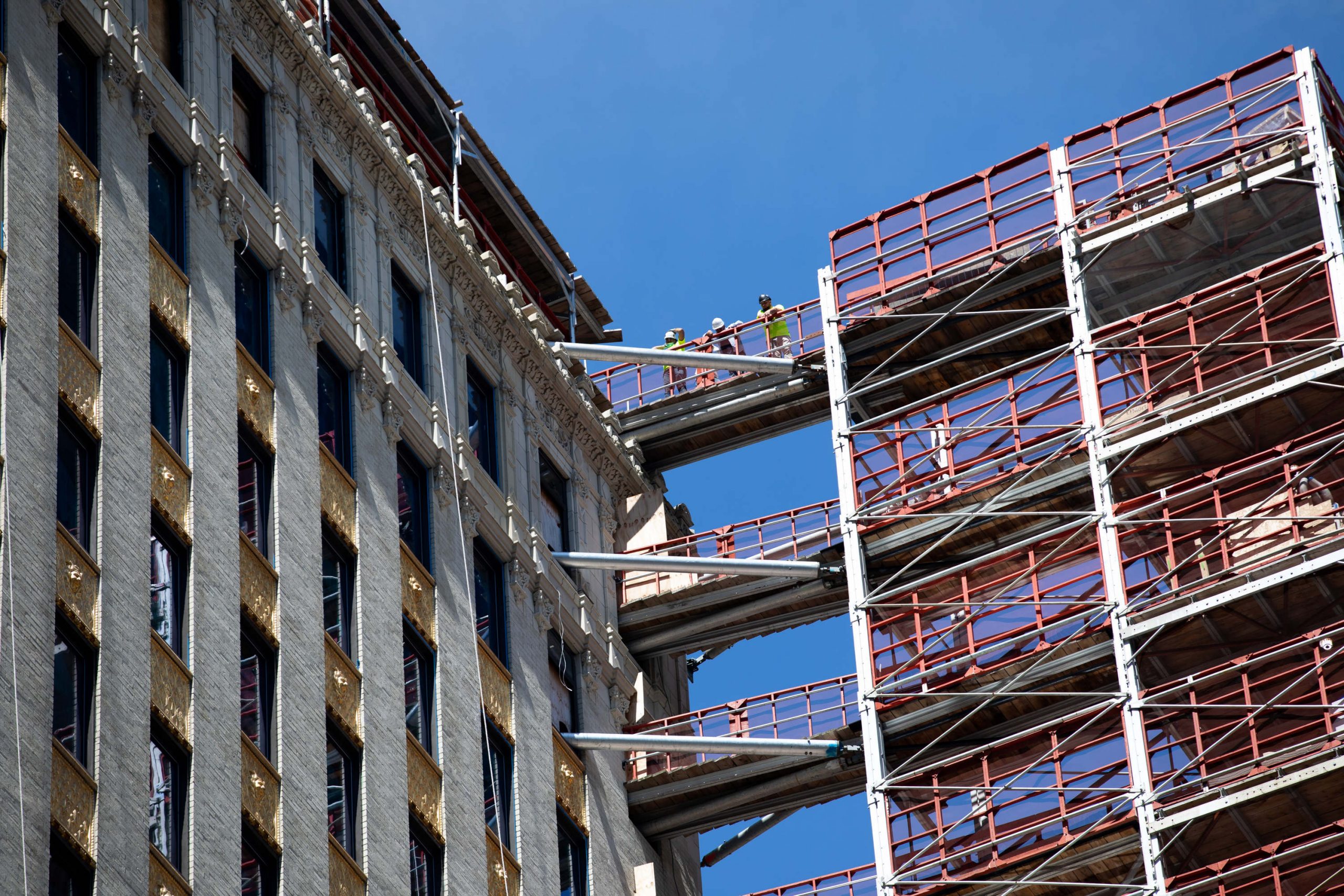The Varick St. immigration court has moved all of its hearings to Fort Worth, Texas, the Department of Justice announced on Thursday.
Starting on Friday, until April 10, all cases scheduled in Varick St. will be heard at the Fort Worth Immigration Adjudication Center in Texas. At the center, judges hear cases remotely from around the country.
The move comes after weeks of debate over the status of the court and a nationwide campaign by an unprecedented alliance of federal prosecutors, immigration judges and defense attorneys to have all of the nation’s immigration courts shutdown during the coronavirus pandemic that has swept the nation. The decision to move the Varick St. immigration court hearings to Texas has created a slew of new questions over how immigration lawyers are expected to file documents for hearings and to appear telephonically.
Earlier this month, the National Association of Immigration Judges, the American Federation of Government Employees Local 511, a union that represents Immigration and Customs Enforcement attorneys, and the American Immigration Lawyers Association joined forces to call for all immigration courts to be closed during the coronavirus pandemic.
The Executive Office of Immigration Review, an agency within the DOJ that oversees the immigration court, closed courts across the country for non-detained hearings, including the court at 26 Federal Plaza court. However, the Varick St. immigration court in Manhattan remained open as detained immigrants have their hearings there.
It was closed for a single day on Tuesday after a court staffer tested positive for COVID-19. EOIR decided to reopen the court on Wednesday with no public announcement. On Thursday, the agency sent an email to immigration lawyers stating that all the cases will be heard remotely by judges in Fort Worth.
“This move continues EOIR’s abysmal record of putting case completions over everyone’s health,” said Immigration Judge Samuel B. Cole, director of communications for the National Association of Immigration Judges. “People are still being put at risk. All of the immigration courts should close.”
EOIR did not respond to a request for comment at the time of publication.
The relocation of hearings creates a number of new issues for immigration lawyers hoping to defend clients who are in detention. The court has given lawyers the right to appear via telephone but in many cases, it does not have the home contact information of attorneys who are living under local orders to not leave their houses.
According to Luis Mancheno, a supervising attorney at the Legal Aid Society, lawyers will have to submit motions to appear via telephone with alternate phone numbers or judges will call their offices. Failure to reach the attorneys could result in a client having to move forward unrepresented. Furthermore, preparing for cases is almost impossible due to limited access to clients in immigration detention and the lack of ability to access their own offices.
“It’s absolutely irresponsible, absolutely inefficient and it has a little regard for the due process rights of our clients,” said Mancheno. There are dozens of hearings moving forward at Varick St. next week.
EOIR has said that lawyers may appear in person at Varick St. in front of judges who will be video teleconferenced in, or travel to Texas. Both would seem to contravene social distancing guidelines outlined by the federal and local governments.
The decisions to open and close courts by EOIR have been made sporadically and often at the last moment. The agency has become notorious for tweeting out late-night notices about the status of certain courts, without notifying people who work there or the lawyers who have hearings there.
According to an email sent out to court staff, which was reviewed by Documented, the decisions to close specific immigration courts are being taken directly by the White House, not the local staff, based on individual instances. The Miami Herald first reported on the memo.
The list of organizations calling for the closure of courts continues to grow by the day. The Immigrant Advocates Response Collaborative, a collaborative of over 80 immigration legal service providers across New York state, organized letters signed by hundreds of New York legal organizations, law firms and immigration advocacy groups calling for the courts to be closed.
Other organizations – 70 in total – also signed on to a letter joining AILA, NAIJ and AFGE Local 511 on Wednesday. Sen. Dianne Feinstein also told the DOJ that the courts should be closed for health reasons during the pandemic.














